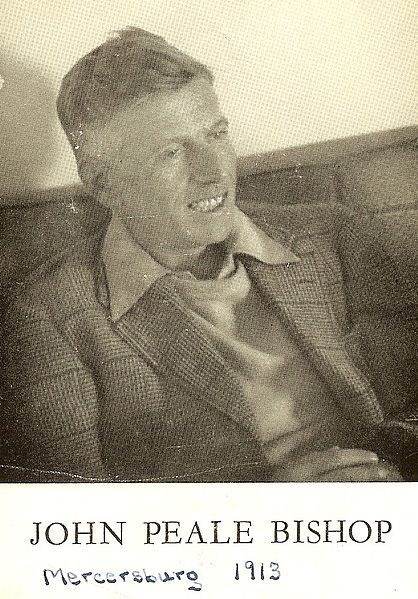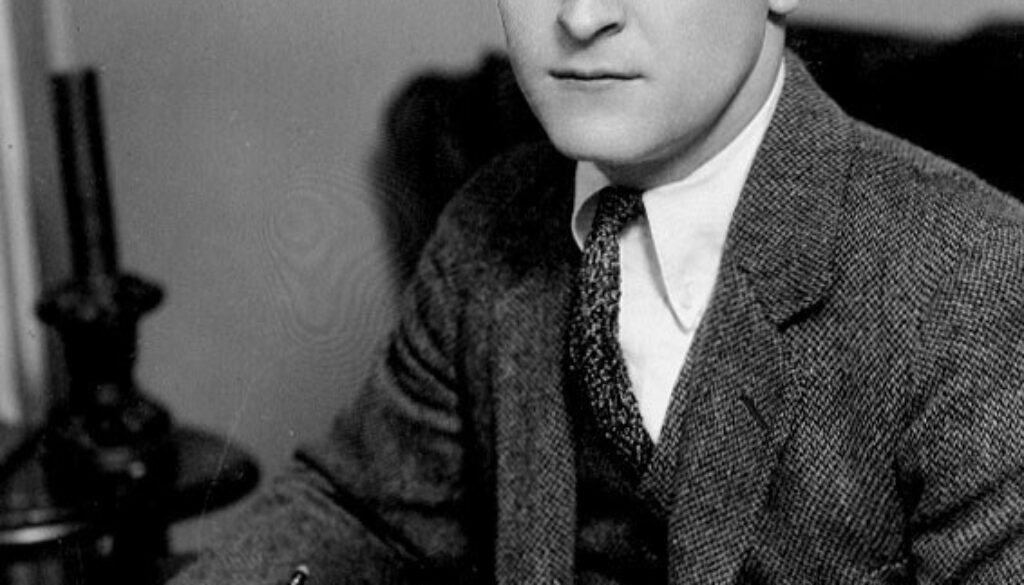Three College Chums
I’ve been having great fun reading an excellent biography of Edmund Wilson by Jeffrey Meyers, who tells the tale of three college chums.

Edmund Wilson, John Peale Bishop, and F. Scott Fitzgerald all went to Princeton together in 1915, and they collaborated on dramatic productions by the Triangle Club, including The Evil Eye, a play in two acts. Wilson and Bishop, two well-read preppies, tolerated the Midwesterner Fitzgerald who had gone to a Catholic high school, but at one point they mocked him in a poem in the Nassau Lit:
“I was always clever enough/ To make the upper classmen notice me./ I could make one poem by Browning/ One play by Shaw,/ And part of a novel by Meredith/ Go further than most people would do/ With the reading of years/ And I could always be cynically amusing at the expense/ Of those who were cleverer than I/ And from whom I borrowed freely,/ But whose cleverness was not effective/ In the February of sophomore year… / But I made one slip:/ I flunked out in the middle of junior year.”
Bishop won all the literary prizes, and published a volume of poetry in 1917. He later married a wealthy woman whom all his friends detested, retired to a chateau in France and was never heard from again.

Fitzgerald gave a manuscript of his first novel This Side of Paradise to Wilson, who heaped contempt upon it and suggested that Fitzgerald had a promising career as a ‘trashy novelist.’
The novel was enormously successful — and if you read it, as I did, you’ll wonder why, as I do — and this caused Bishop and Wilson to become enormously jealous of their chum’s sucess.
Wilson wrote, “I have said that This Side of Paradise commits every sin that a novel can possibly commit: but it does not commit the unpardonable sin: it does not fail to live. The whole preposterous farrago is animated with life.”
“He has been given imagination without intellectual control of it;” Wilson wrote, “he has been given the desire for beauty without an aesthetic ideal; and he has been given a gift for expression without very many ideas to express.” Whoa! You’d think Wilson was revoking Fitzgerald’s poetic license.

Despite all the abuse, Fitzgerald continued to send his manuscripts to Wilson, not just for comments, but for editing, because he continued to value his opinion. And as Fitzgerald’s alcoholism caused him to fall apart, Wilson stuck by him as best he could. At one point Wilson makes a reference to “This Side of Paralyzed by F. Scotch Fitzgerald.”
Besides the literary criticism for which he is famous — Axel’s Castle, To the Finland Station, and Patriotic Gore, among many others — Wilson published a number of unremarkable plays and works of fiction. They were expertly crafted, but they “failed to live.”
Once a woman told him she had purchased a copy of his novel I Dream of Daisy, and he replied, “So it was you who bought it!”
I have to ask: Of these three college chums, which one have you heard of? The moral of the story is: Don’t pay any attention to your overeducated preppy classmates.
